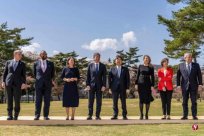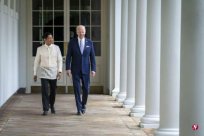
(Washington Composite Electric) The United States Ambassador to China, Burns, said that the United States restricting trade with technology in China is a limited and common sense measures adopted to protect national interests. At the time of competition between the two countries, the United States has no reason to assist China to assist China.Improve military strength.He reiterated that the United States did not seek decoupling with China and stated that the United States was ready to have a high -level dialogue with China.
Bernus attended the online symposium at the Statthary Center of Washington think tank on Tuesday (May 2nd), "We did not want to separate the two economies of China and the United States, but we adopted in some areas.Measures to protect national security interests and continue to do so. "
Bernus's statement has strengthened the information transmitted by senior US officials in recent weeks, that is, the Bayeng government sought "removing risks" instead of "decoupling" in the Sino -US economic relations.
He said: "Our investment in the two -way trade between China and the United States is increasing, not decrease. But in some advanced technology fields, we are preparing or announced some restrictions, because this obviously meets the national interests of the United States." Bernus described that Sino -US relations are complex and competitive, but "we don't seek conflict with China. We don't want to return to the Cold War state with China. We need to make this relationship more stable."
He also mentioned that there are currently about 295,000 Chinese students studying in the United States, but there are only 350 American students in China."China -US society has been decoupled in the past three years. This is unhealthy and not wise."
Bernus: The United States is ready to have a high -level talks with China
Bernus also stated that the United States has prepared to have a high -level talks with China and hope that the two parties will establish better communication channels."Our opinion is that the two governments of the two countries must establish a better communication channel for communication. When we encounter big problems and major differences, this is especially important. We will never avoid discussions.We are doing each other. "




